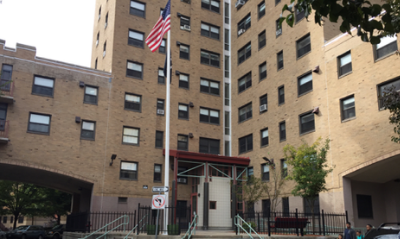When We Invest in Affordable Homes, We Invest in Our Communities.
Viewpoint articles are written by members of the SPH community from a wide diversity of perspectives. The views expressed are solely those of the author and are not intended to represent the views of Boston University or the School of Public Health. We aspire to a culture where all can express views in a context of civility and respect. Our guidance on the values that guide our commitment can be found at Revisiting the Principles of Free and Inclusive Academic Speech.
The School of Public Health’s neighborhood is one that, like many Boston communities, has seen significant changes in terms of affordable housing and cost of living. In 2014, the Zillow rental index estimated that a one-bedroom apartment in the South End averaged more than $2,500 a month; median rents have only increased since then. As a result, low-income individuals and families are faced with an impossible choice: spend the majority of their household income on rent—leaving basic needs unmet—or lose housing altogether. This is known as “housing poverty,” and it is a prevailing public health crisis across the United States.
To combat this crisis, governmental agencies such as the US Department of Housing and Urban Development (HUD) and Boston Housing Authority (BHA) have instituted affordable housing programs. Since its founding in 1965, HUD has raised millions of Americans out of poverty and significantly decreased homelessness across the nation. Yet even today, only 1 in 4 families in need of government housing assistance actually receive this support. Additionally, many of our nation’s affordable housing infrastructures are deteriorating, devolving into inadequate and unsafe living environments.
When affordable housing is prioritized, however, individuals and communities thrive.
Living in a safe, stable, affordable home allows a resident’s overall health to improve. Without the worry of high rental costs, individuals can invest their time and money in eating higher quality foods, receiving adequate health care, and seeking better opportunities for themselves and their children. And for low-income children specifically, living in affordable housing is essential to their growth and development. When low-income children live in stable homes, they are more likely to succeed in school, attend college, and earn money as an adult. These children are also less likely to display behavioral problems when compared to unassisted, low-income children.
At the community level, investing in affordable housing increases employment and ensures economic mobility. A report from the Campaign for Housing and Community Development Funding found that affordable housing programs boost local economies and support hundreds of thousands of jobs across the country each year. Additionally, affordable housing developments increase local purchasing power. This purchasing power positively impacts the vitality of the neighborhood, contributing to its overall sustainability.
In the South End, BHA manages the Ruth Lillian Barkley Apartments, which are located less than half a mile from SPH. Home to 167 families, the complex strives to meet BHA’s mission: “To provide stable, quality affordable housing for low and moderate income persons; to deliver these services with integrity and mutual accountability; and to create living environments which serve as catalysts for the transformation from dependency to economic self-sufficiency.”
In 2013, Barkley Apartments received its current name as a way to honor a tireless community activist and resident, who worked to advocate on behalf of those “who didn’t have a big enough voice to make a difference on their own.” To honor the work of activists like Ruth Lillian Barkley and support our neighbors, the Activist Lab is co-hosting a holiday party for the children at the Barkley Apartments with Students of Color for Public Health. The holiday party will take place on Wednesday, December 11, 2019.
As public health professionals and members of the South End neighborhood, it is our responsibility to ensure affordable housing is available and prioritized, and it is our privilege to work with community members who advocate on behalf of their communities. No one should be forced to give up basic needs like food, water, and health care to keep a roof over their head. When we invest in affordable homes, we invest in people and our communities.
Donate to the Barkley Holiday PartyHeatherly Mitch is administrative director of the Activist Lab. Mallory Bersi (SPH’19) is a former student engagement intern in the Activist Lab and now the social media and digital content editor in the Office of Communications and Marketing.

Comments & Discussion
Boston University moderates comments to facilitate an informed, substantive, civil conversation. Abusive, profane, self-promotional, misleading, incoherent or off-topic comments will be rejected. Moderators are staffed during regular business hours (EST) and can only accept comments written in English. Statistics or facts must include a citation or a link to the citation.